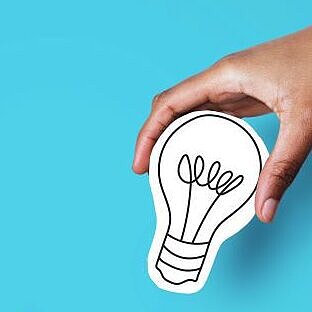BDEW publishes "Annual Report: Energy Supply 2022
Source: Energie & Management Powernews , December 21 2022
For the first time, 47 percent of electricity consumption came from renewable energies in 2022, but due to more coal-fired power, CO2 emissions from the energy industry also increased, the BDEW balanced.
From 42 percent in the previous year, the share of green electricity rose in 2022 to 47 percent in German electricity consumption. That balanced the Federal association of the energy and water industry (BDEW) on 20 December in Berlin. At the same time, however, the share of lignite- and hard coal-fired electricity also grew, from 28.3 percent to 31.9 percent. This was due to the return of coal-fired power plants to the electricity market in order to save gas, explained BDEW Managing Director Kerstin Andreae. In addition, the decommissioning of three nuclear power plants at the end of 2021. As a result, greenhouse gas emissions from the energy industry rose again for the first time in years - by around one percent.
"This development is of course a step backwards for the climate," Andreae said. That is why it is necessary to counteract with more speed in the expansion of renewable energies, in the expansion and conversion of the networks and in the development of a hydrogen market, he added. According to BDEW figures, natural gas consumption in Germany fell by 14.8 percent in 2022 compared to the previous year. The reason was milder weather and savings effects due to the sharp rise in prices, Andreae assessed. The share of natural gas in electricity generation fell in 2022 compared to the previous year - from 15.4 percent to 13.5 percent.
Gas supply remains challenging
Due to the loss of Russian pipeline gas in the wake of the Ukraine war, further savings efforts are necessary, he said. In 2022, about 20 percent of the natural gas consumed in Germany still came from Russia, compared with 55 percent previously. For the next winter, storage facilities would have to be filled from completely different sources. For this, pipeline gas from the Netherlands and Norway would come into question, as well as liquefied natural gas deliveries via the LNG terminals currently coming into operation on German coasts.
"It is important that next year the course is set for a market design in which investments in controllable power generation capacities are also worthwhile," Andreae urged the politicians. For this, despite flexible driving and the use of climate-neutral fuels, such as hydrogen or biomass in particular, sufficient economic incentives would have to be created in a sustainable and plannable manner. "We need to loosen the shackles on planning and approval law, we need leaner procedures and processes, we need an attitude of success right down to every office," she appealed.

Remove obstacles for renewable energies
The biggest stumbling block for onshore wind energy is still a lack of land: 2 percent of the actually buildable area of the federal territory would have to be fully designated already by 2025 and not only in 2032, as envisaged by the federal government so far. "Otherwise the Federal Government cannot reach the necessary and parallel in the EEG fixed development goals to 2030", warned Andreae.
Also for Photovoltaikanlagen would be exhausted up-to-date still by far not all surface potentials. Significant improvement of the rules for prosuming, tenant electricity and energy sharing are necessary for a PV boom, she said. "We need to get PV on the roofs faster," said the BDEW managing director.
Developing a hydrogen market
In 2023, it will also be important to make real progress in developing a hydrogen market. In this regard, as with many other energy transition technologies, the U.S. has created attractive investment conditions under the Inflation Reduction Act, he said. Europe must therefore do everything to ensure that investors do not migrate, Andreae warned.
"We therefore need a hydrogen law (H2G) in which the central points for a rapid hydrogen ramp-up are swiftly regulated," she demanded. This includes a definition for "green" hydrogen from renewable sources and a regulation for the rededication of existing gas infrastructure for hydrogen, Andreae explained.
The Annual Report on Energy Supply 2022 is available on the BDEW website.
Author: Susanne Harmsen



